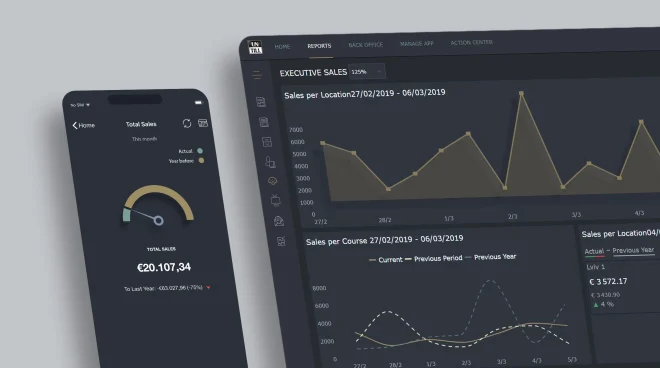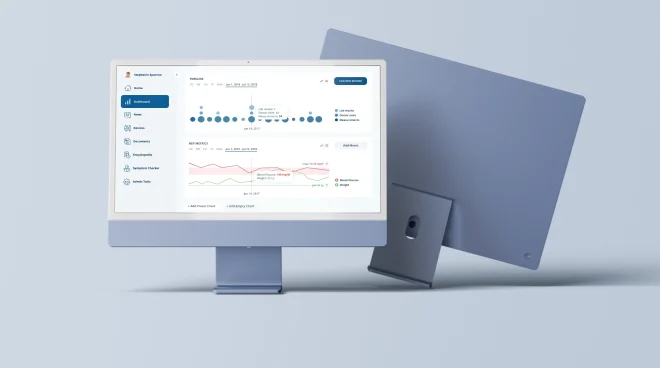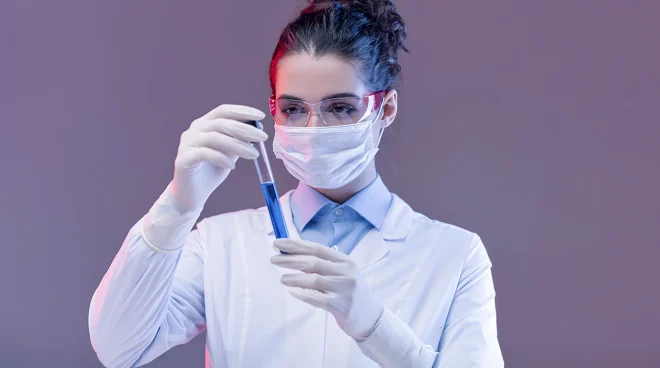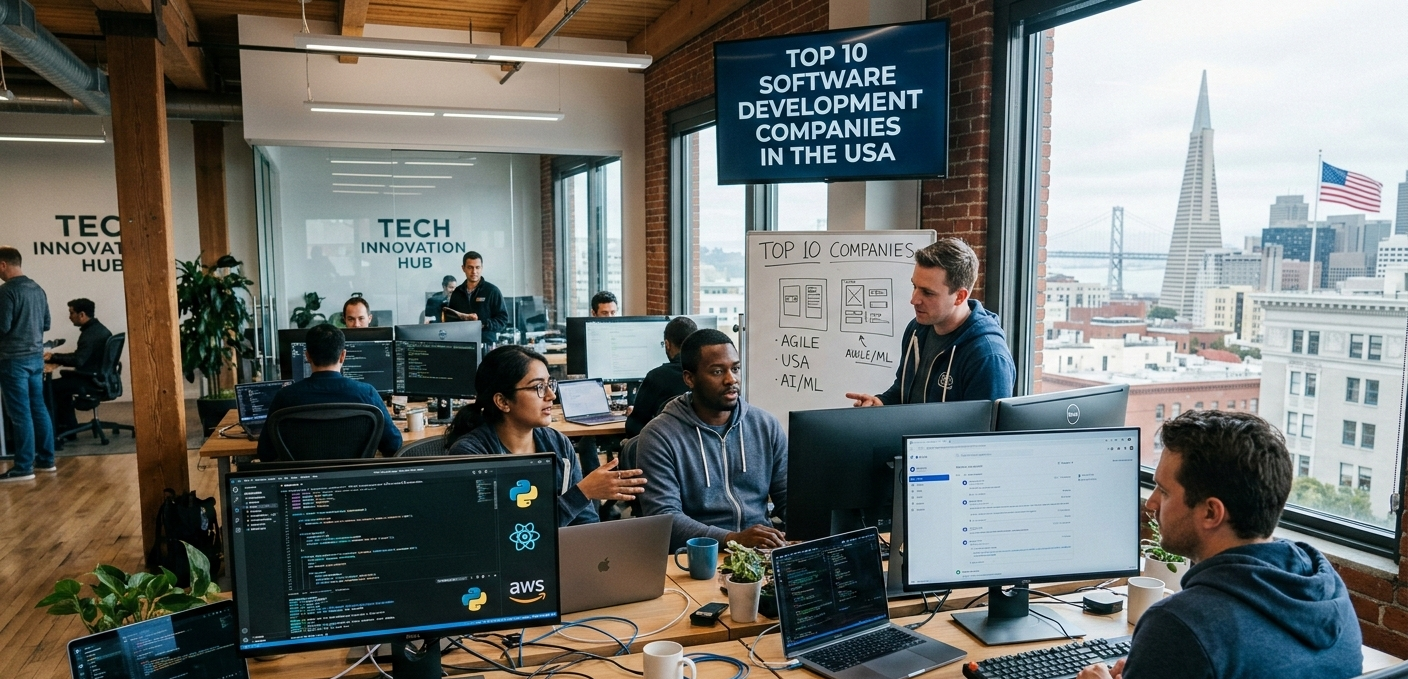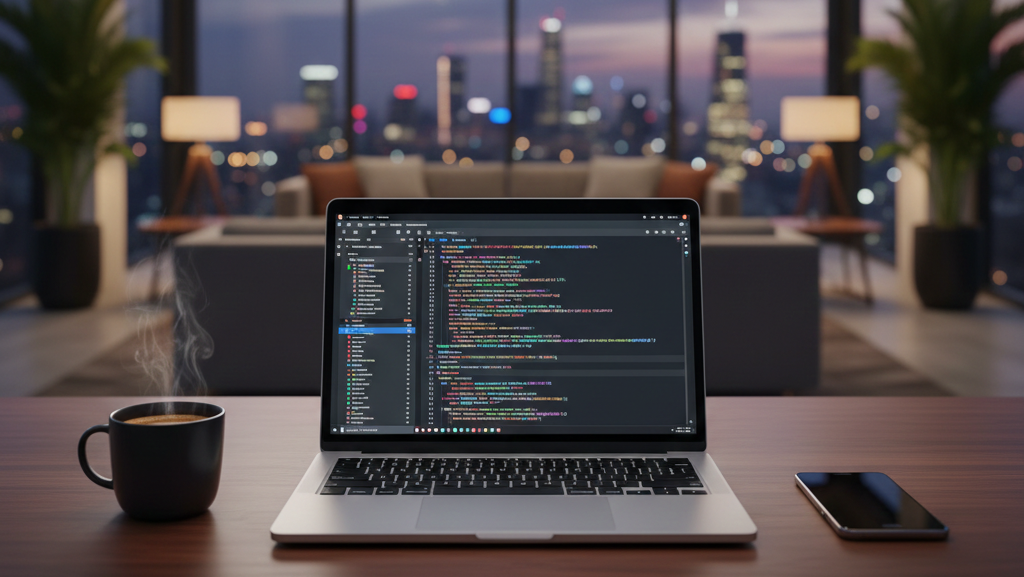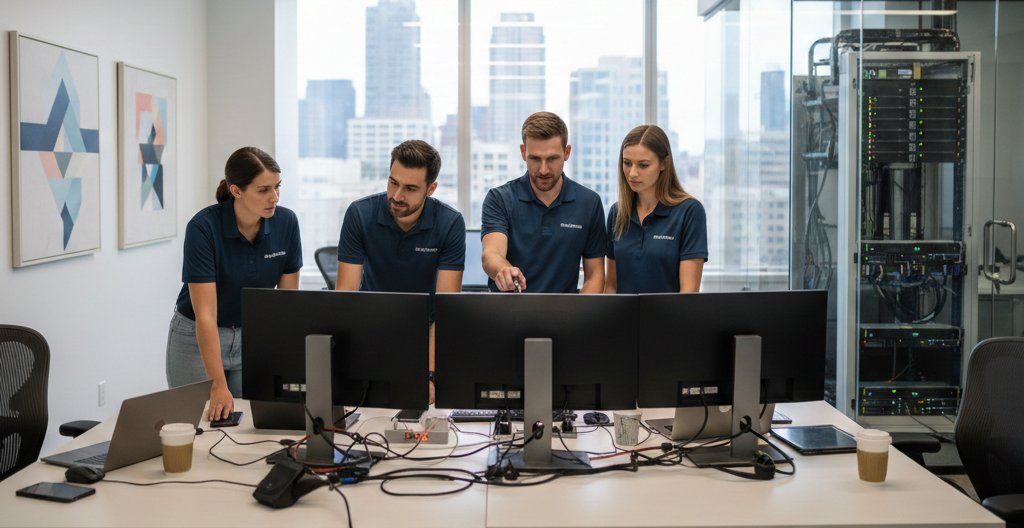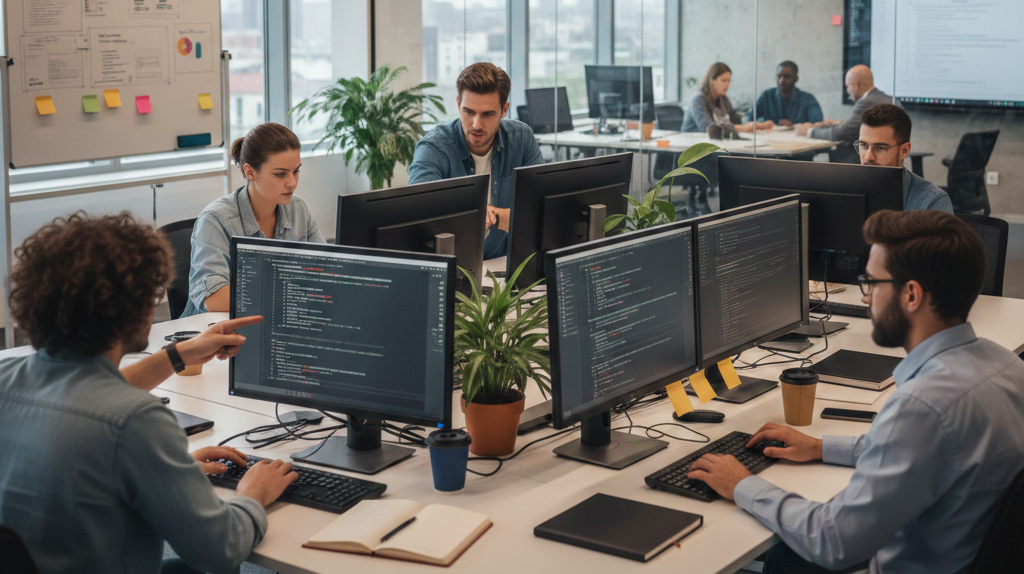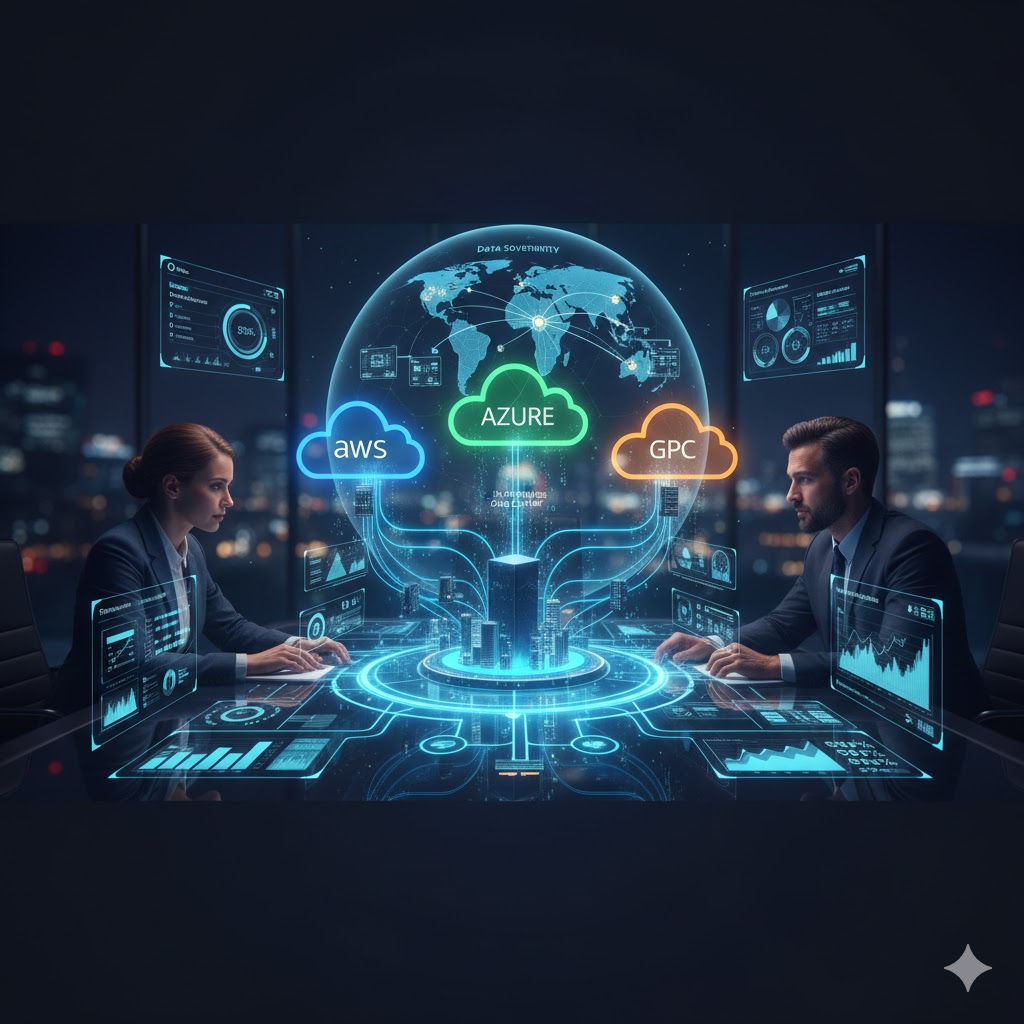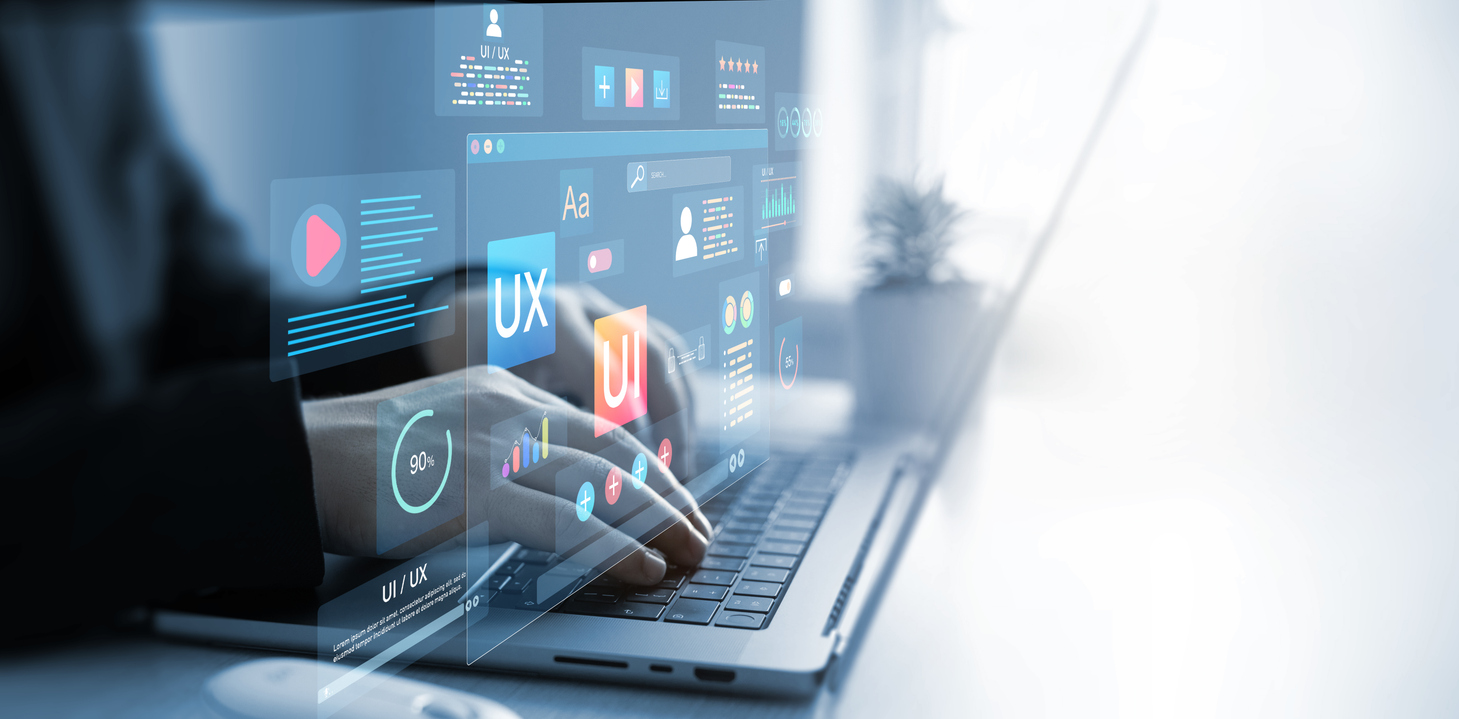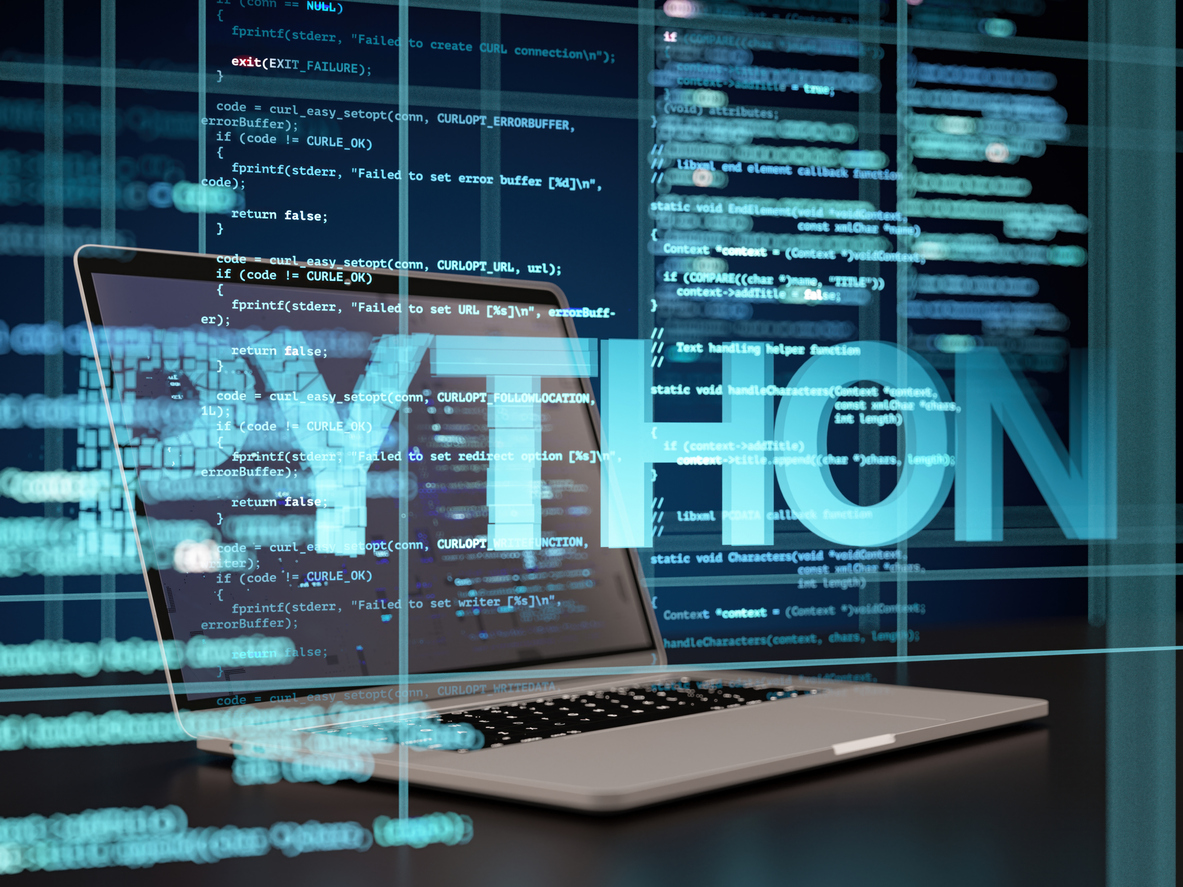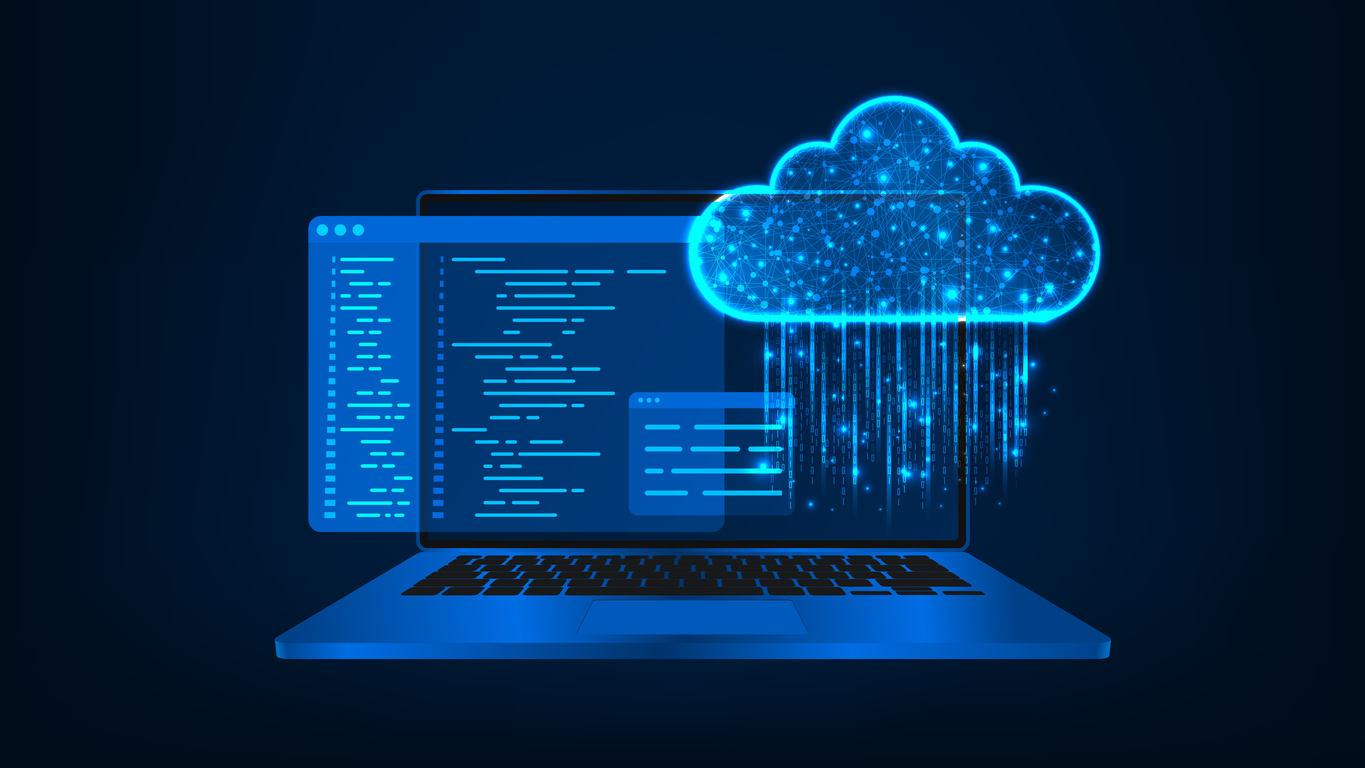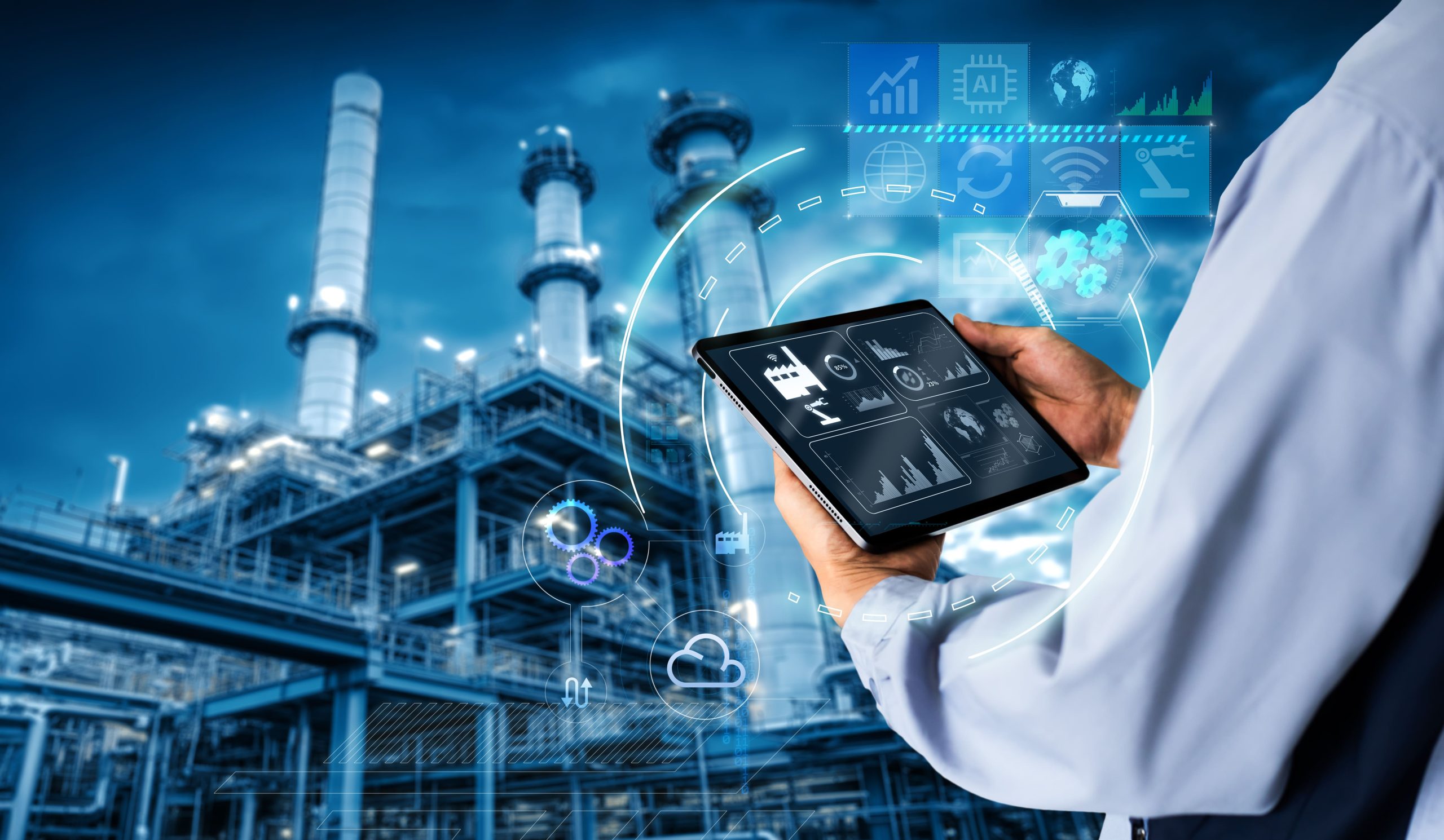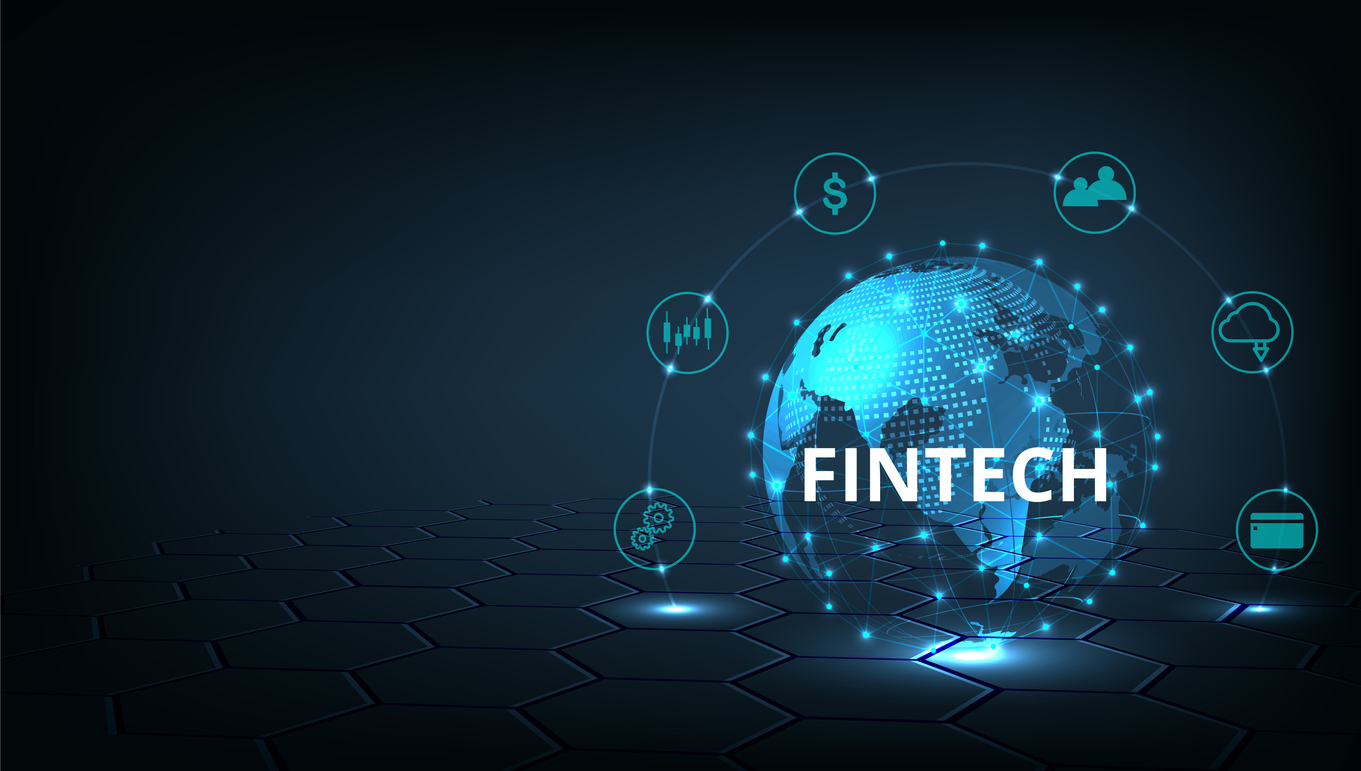We develop with intuitive design and seamless user experiences in the center. User-friendly interfaces simplify complex tasks, ensuring that your team and customers can effortlessly interact with software, regardless of technical expertise.
Travel and hospitality software development
Make hospitality what it’s meant to be — optimize the guest journey, and deliver seamless service with technology designed around people.

What we offer
We develop travel and hospitality software for large and small businesses, enabling them to maximize their resources while staying competitive in the fast-changing market. We will help you implement CRM tools, booking engines and ticketing systems, property management systems, advanced reporting and analytics modules connected to POS systems, mobile applications compatible with iOS and Android platforms, and other features built around your vision and needs.
We go all out to ensure your desired objectives are met while maintaining a high level of quality in all aspects of our travel software development services—from design to deployment. We are committed to delivering travel software solutions that manage complex processes, create comprehensive customer profiles, streamline operations across multiple locations, increase visibility into data, reduce costs through automation tools, improve operational efficiency with real-time analytics, and more. Our dedicated development team is well-versed in the complexities of travel industry software, giving you the peace of mind that your project is in good hands.


Need tech with the warmth of human touch?
Our software turns hospitality into an art form, crafting smooth, personalized experiences.
Our capabilities
-

Custom hospitality software development
We have extensive knowledge in creating bespoke travel and hospitality software from scratch or integrating existing platforms into one unified system that allows users to access data across multiple devices. Our team handles every aspect of the custom software development for travel: product discovery, UX/UI design, architecture, coding, on-premise or cloud deployment, and maintenance. With an agile approach at all implementation stages, we deliver hospitality software designed for scalability, efficient performance, and top-notch usability.
-

Hospitality software modernization
Our team of skilled developers creates custom solutions to modernize legacy software for hotels, restaurants, travel providers, and hospitality venues. Our services are designed to meet your needs, ensuring all business processes and requirements are met. We offer comprehensive modernization packages ranging from cloud migration to complete digital transformation based on your current state and desired end goal. Our experts ensure you have access to best practices and technical expertise when it’s time to implement your hospitality solution or expand into new areas like mobile apps or AI-powered analytics.
-

Mobile app development
Our mobile developers craft native Android and iOS apps as well as cross-platform applications that meet the unique needs of the travel and hospitality sector. We implement solutions that offer seamless customer experiences with bookings, reservations, check-ins and checkouts, payments, special offers, and more. Our designers ensure the app reflects your brand’s unique image and provides the customized feature set necessary for you to stand out. At the same time, we ensure it can handle large volumes of data without sacrificing performance or reliability during peak hours.
-

API integrations for hospitality
Our team helps you integrate your system and processes with a vast array of third-party applications or create a custom API for your service. We offer numerous APIs that allow hospitality and travel providers to access external web services, including reservation providers, booking engines, payment gateways (PayPal, Stripe), POS systems, and more. Our developers seamlessly connect your hospitality software with other platforms through a secure framework that works in real-time, enabling faster response, improved customer service, and task optimization.
-

Technical consulting
We provide tailored technical advice, guidance on technology implementation strategies, hosting services, and other IT-related tasks to help your business reach its goals. Our experienced team will help you fully take advantage of your software investment and maximize your ROI by automating business processes. We assist you with anything from validating initial ideas to implementing enterprise-level systems and optimizing performance across your organization’s infrastructure.
Trends in travel and hospitality software development
-
AI-powered personalization
Harnessing AI and machine learning, we create custom solutions that personalize every customer interaction. From tailored recommendations to dynamic pricing, we help you build software that delivers relevant experiences at every touchpoint.
-
Mobile-first solutions
Mobile-first applications cater to the increasing demand for mobile engagement. Our custom-built apps enable seamless bookings, digital check-ins, and personalized offers, ensuring your guests have a superior experience on their preferred devices.
-
Sustainability and green technology
We develop eco-friendly software solutions to support your commitment to sustainability. Our systems incorporate energy efficiency, paperless operations, and smart resource management, aligning with environmental goals and customer expectations.
-
IoT and connected devices
Design smart environments with IoT-enabled solutions. We develop software that integrates connected devices, allowing guests to control room settings and access personalized services while improving operational efficiency through predictive maintenance.
-
Enhanced data security
Strengthen your data security with customized solutions that ensure compliance with global regulations. We develop software with advanced encryption, multi-factor authentication, and other robust security features to protect your business and customer data.
-
Automation and self-service
We create automation-driven solutions that streamline operations and enhance guest satisfaction. From custom self-service shops to AI-powered chatbots, we develop software that reduces operational costs while delivering faster and more efficient service.

Travel and hospitality solutions we offer
How you benefit from partnership with us
-
Ease of use
-
Enterprise-scale solutions
We develop robust, scalable software that meets the needs of both large hospitality chains and smaller businesses. They adapt to growing demands, ensuring reliable performance and easy updates as your business evolves.
-
Quality assurance
Our development process includes rigorous testing and adherence to industry standards. The software meets all performance, reliability, and security benchmarks, providing a stable and secure platform for your operations.
-
Flexibility and scalability
Whether you need cloud-based deployment or on-premises solutions, we offer flexible options to match your business needs. Scalable architecture allows your software to grow with your business without compromising performance.
-
Comprehensive support
We provide continuous post-launch support and maintenance, ensuring your software remains optimized and up-to-date so you can focus on what matters most—delivering exceptional hospitality experiences.
-
Advanced analytics
We integrate powerful analytics tools into your hospitality software to help you make informed decisions, optimize processes, and improve overall service quality, giving you a competitive edge in the dynamic hospitality industry.
Travel and hospitality software development services can help you



Need tech with the warmth of human touch?
Our software turns hospitality into an art form, crafting smooth, personalized experiences.
Daryna Chorna
Customer success manager

Our approach
-
01
We assess your business case and existing solutions, noting any gaps or areas for improvement. Our team conducts product discovery as needed and helps you pick the best-fit cooperation approach.
-
02
We work with you to define requirements for customizing existing solutions or developing custom hospitality software specific to your niche and emerging trends in technology and architecture. Once this is done, we estimate the project and set milestones.
-
03
Our travel software development company develops proper documentation, including flowcharts, defining user roles, mockups, and interactive prototypes that specify the product’s features and interface components. We test each solution before coding to prevent future issues.
-
04
Our custom software development for travel is based on scalable architecture and reusable code covered with automated tests. The QA team combines manual testing methods with automation tools, covering core application logic all the way to integration and usability scenarios.
-
05
We integrate with your existing solutions, databases, or third-party APIs, ensuring efficient and secure data flow across all touchpoints. Then, we choose the deployment strategy that suits your data privacy, performance, and scalability needs.
-
06
After deploying travel software solutions into production, we run post-launch maintenance to address potential issues and optimize the overall performance when required.
What our clients say
4.8
What makes us a great choice for hospitality software development?
-
01
Dedication to client’s success
At BV, you’ll find a partner biotech software development company that cares about your success as much as you do. Our team becomes an extension of yours, working tirelessly to bring your vision to life. We don’t just write code – we think ahead, help to move faster, and prevent complications. We go above and beyond to ensure our clients are happy with the final results of their projects.
01 /04 -
02
Proven expertise
We’ve been building up tech expertise since 2009. By following industry standards, we help businesses get the most out of travel software development services. Although we’ve earned the Microsoft Partnership, our expertise goes far beyond the Microsoft stack and covers diverse cutting-edge technologies. So, when you work with us, you can be confident that you are working with some of the best minds in the industry and natural problem-solvers.
02 /04 -
03
Unique talents
Our rigorous hiring process adheres to extremely high recruitment standards without any compromises. We evaluate dozens of engineers to fill senior positions, while many talented junior developers come from our Academy program, which has a 5% acceptance rate. Most of our engineers major or double major in math and computer science, and our management team has in-depth industry knowledge and experience.
03 /04 -
04
Strong corporate culture
We are passionate about what we do and take pride in our work. Our corporate culture revolves around open communication, creative thinking, and collaboration. Day by day, we maintain a thriving environment where everyone can openly share concerns, give regular updates, and exchange constructive feedback.
04 /04
Travel and hospitality software development: FAQ
-
Why should I choose Blackthorn Vision as my travel software development company?
Blackthorn Vision offers a proven track record in custom software development, with a team of experts dedicated to your success. We tailor our solutions to meet your specific needs, ensuring scalability, reliability, and exceptional performance. Our client-centric approach, combined with deep industry knowledge, makes us a trusted partner for innovative and high-quality software solutions.
-
How can my business benefit from travel software development?
Custom travel software streamlines operations, enhances customer engagement, and improves overall efficiency. From automating booking processes to providing personalized customer experiences, our solutions help you optimize resources, reduce costs, and increase revenue. By leveraging advanced technology, your business can stay competitive and meet the travel industry’s ever-evolving demands.
-
What are the key challenges faced in hospitality software development?
Key challenges include integrating diverse systems, ensuring data security, and maintaining scalability across multiple locations. The complexity of managing real-time data, handling peak load performance, and providing seamless user experiences are critical areas where expertise is essential. Our experience in overcoming these challenges allows us to develop robust and efficient solutions tailored to the unique needs of the hospitality industry.
-
What is an automated travel system?
An automated travel system uses technology to manage and streamline travel-related tasks without manual intervention. This includes automated booking, reservations, check-ins, and customer communication. By reducing the need for human involvement, these systems improve efficiency, reduce errors, and enhance the overall customer experience, making operations smoother and more cost-effective.
-
What specific software development services do you offer for the travel and hospitality industry?
We offer the development of a wide range of services, including custom CRM and booking systems, property management systems (PMS), mobile application development, advanced analytics, API integrations, and cloud migration. Each service is tailored to meet the specific needs of travel and hospitality businesses, ensuring scalable, secure, and high-performing solutions.
-
How does travel and hospitality software enhance the customer experience?
Travel and hospitality software enhances the customer experience by providing seamless, personalized interactions across all touchpoints. Features like real-time bookings, mobile check-ins, personalized offers, and automated communication create a more convenient and engaging experience for guests. Additionally, advanced analytics help businesses understand customer preferences, allowing for tailored services that exceed expectations.
Client success stories
You may also like
Contact us

Daryna Chorna
Customer success manager








